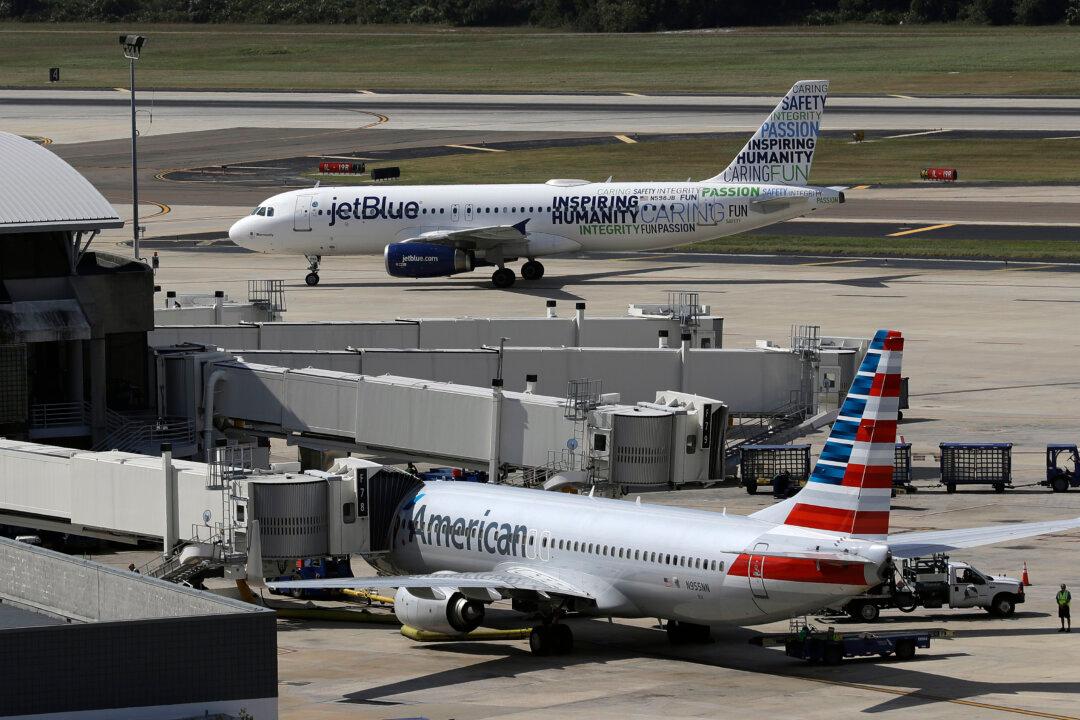JetBlue Airlines is ending its partnership with American Airlines in the northeastern United States after a federal judge in May ruled the two carriers should dissolve the agreement to comply with anti-competition laws.
The companies announced the ending of the agreement, known as the Northeast Alliance (NEA), in separate statements on July 4 where they voiced their disagreements over the court’s decision.




